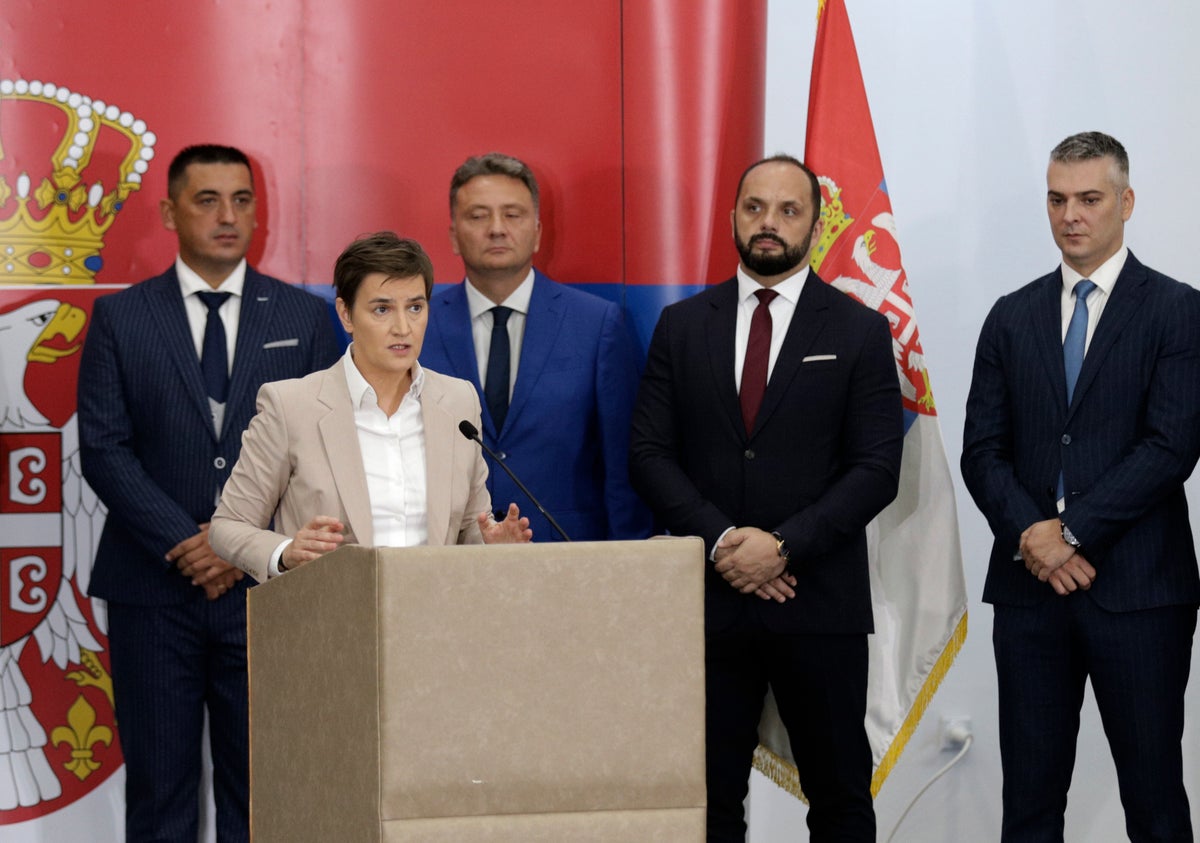
Serbia's prime minister on Monday visited a Serb-dominated part of neighboring Kosovo following a recent flareup in tensions between the former war foes that had sparked fears of new instability in the Balkans amid the war in Ukraine.
Kosovo authorities and NATO-led peacekeepers stepped up security as dozens of Kosovo Serbs greeted Ana Brnabic upon arrival in Mitrovica. The northern Kosovo town near the border with Serbia has been divided into Serb and ethnic Albanian-dominated parts since the conflict in 1998-99.
Brnabic is the highest-ranking Serbian official to visit Kosovo in years. As she arrived, two ministers from the Kosovo government traveled to an ethnic-Albanian-populated area in southern Serbia, in what some observers saw as a sign of efforts to ease tensions.
In 1998, Kosovo's separatist ethnic Albanians rebelled against Serbia's rule, prompting a brutal crackdown. In 1999, NATO bombed Serbia to force Belgrade to pull out of Kosovo. But Serbia still does not recognize Kosovo's 2008 declaration of independence and tensions recently soared, prompting Western diplomatic efforts to defuse them.
Brnabic said Serbia is committed to a European Union-mediated dialogue with Kosovo with an aim to normalize relations. She said only a compromise could bring lasting stability.
“Dialogue is important,” Brnabic said at a press conference. “I would like to send a clear message of peace, stability and tolerance and ... that we will always be stand by our people in Kosovo."
Trouble brewed last month over Serbia's and Kosovo's refusal to recognize each other's identity documents and vehicle license plates. Kosovo Serbs in the north put up roadblocks and fears grew of clashes before EU and U.S. envoys negotiated a solution to the travel documents problem, allowing the situation to calm down for the moment.
The EU has told both Kosovo and Serbia that they must normalize ties if they want to advance toward membership in the 27-nation bloc. Brussels and Washington recently have stepped up mediation efforts, fearing uncertainties over the war in Ukraine and Serbia's close ties with Russia could aggravate matters.
While Serbia has condemned the invasion of Ukraine, Belgrade has also relied on Russia — and China — in its bid to retain the claim on Kosovo. Most EU countries and the U.S. recognize Kosovo's statehood.
German Chancellor Olaf Scholz and French President Emmanuel Macron have asked their foreign policy advisers to “directly support” the efforts of an EU envoy to address the tensions, German government spokesman Steffen Hebestreit said Monday.
The two advisers, and EU envoy Miroslav Lajcak, will visit Kosovo and Serbia this week “to explore options for progress in dialogue,” he said in Berlin.
The offices of Kosovo Prime Minister Albin Kurti and Serbia's President Aleksandar Vucic both say they got letters from Scholz and Macron urging “difficult” decisions in order to push the dialogue forward.
Serbian PM Brnbic complained of an allegedly worsening position for minority Serbs in Kosovo. Most Serbs who live in Kosovo's north, next to Serbia, have defied Kosovo's statehood and the area has been the site of numerous incidents over the years.







